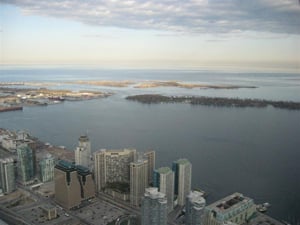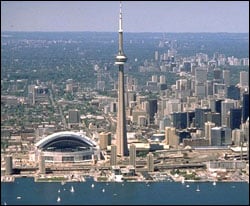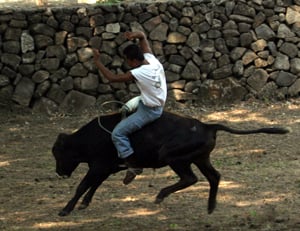Costa Rica Blog
Canada - Maybe not the first place you thought of to retire
Posted by Steve Linder on Thu, Dec, 01, 2011
Tags: Living Abroad, international real estate, Canada, retirement
Canada
In our continuing series visiting potential countries for North Americans to retire or relocate, today we will take a look at Canada. As always, we'll look at cost of living considerations, accessibility, political stability and more. Check our blog for a similar comparison to a variety of other countries.
The United States’ neighbor to the north is not usually the first place Americans think of when they’re considering retiring abroad, but Canada offers some appealing benefits for expats, as well as some difficulties worth overcoming.
It may not be a tropical paradise that some retirees dream of, but for those who prefer world-class skiing rather than skin-diving it just might be the prefect place. And it’s hardly all prairies and frozen tundra -- from the ruggedly graceful coastline of the Atlantic provinces to the lush Okanagan Valley in British Columbia, Canada is a vast country of natural beauty. It also boasts some of North America’s most important cities, Toronto (photo) , Montreal and Vancouver, all culturally vibrant and diverse metropolises.
Two of the biggest financial incentives for moving to Canada are its lower cost of living relative to the United States and its national health care program which is mostly free at the point of use for its citizens. Canada’s typically higher taxes may counteract these benefits for some people, but at the very least Canada and the United States have an agreement not to tax expats twice, avoiding a problem that can plague Americans abroad in other countries.
The biggest challenge facing those of any country who wish to retire in Canada is getting permission to do so. United States citizens don’t need to apply for a visa to visit Canada for up to three months, but to stay there permanently does require a visa. Unfortunately, Canada no longer offers a specific visa for retirees, which leaves expats with the option to either apply for residency as an investor, which requires a minimum net worth of $800,000, or as a skilled worker, which is only open to certain occupations. Expats who enter Canada on a skilled worker visa may find difficulty gaining employment in some of the eastern states without being bilingual in English and French, but French is not required in the rest of the country.
Country Overview
Canada has the second largest landmass of any country in the world, and its southern border with the United States is the world's longest. It is a vast country, and contains more freshwater lakes than anywhere else in the world. It is made up of mostly plains with mountains in the west and lowlands in the southeast. The climate in the north and interior is usually far below freezing, with snow covering the ground at least half the year, but the costal regions enjoy temperate climates and highs in the 70s, with British Colombia having the mildest winters.
Facts and Figures
Canada’s population was 33,212,696 in 2008 and is estimated to be 35,051,000 by 2015. Most people speak English, although about 1/3 speak French; both are official languages.
In terms of crime, the rate of intentional homicides is 1.81 per 100,000 people which is incredibly low by international standards
Political Instability Index (out of ten): 2.8
Quality of Life ranking (out of ten): 7.599
Economics
In terms of currency, one US dollar is roughly equal to 1.13 Canadian dollars.
Price of a round-trip flight to Toronto:
From New York: $311 (Expedia), $362 (American Airlines)
From Los Angeles: $561 (Expedia), $628 (American Airlines)
From Miami: $388 (Expedia), $428 (American Airlines)
Price to rent an economy car for 10 days in Toronto: $368.88
Median price for an apartment in Toronto’s city centre: $7,538 per square meter.
Tags: Costa Rica real estate, international real estate, living internationally, Canada, what to consider when moving abroad
Horses, Bulls and Rodeos - A Costa Rican National Pastime
Posted by Steve Linder on Thu, Oct, 07, 2010
If you happen to be in Costa Rica at the right time of year, a fun thing to do is going to the many rodeos, horse demonstrations or “bull fights”. Horses are almost a national symbol in Costa Rica and always a cause for a celebration. Rodeos are staged throughout the country and many small towns have their own rodeo or bull ring. There are also some portable ones and even a circuit of professional riders that tour around and appear at shows.
Tags: Panama, Mexico, Belize, Ecuador, adventure travel, affordable healthcare, Buenos Aires, Colombia, cotacachi, Cuenca, Doing Business in Panama, easy retirement, Ecuador Real estate, Fortaleza, Fortaleza real estate, healthcare abroad, international real estate, investment, investments, invest overseas, live in Colombia, Live in Costa Rica, live in Ecuador, live in Mexico, live in Panama, live overseas, low cost of living, Mexico healthcare, mexico real estate, offshore banking, Quality of Life Index, real estate in Uruguay, real estate investment, retire overseas, Travel travel writing, Tulum, Uruguay vacations, wealth protection, weird and wonderful, Costa Rica





